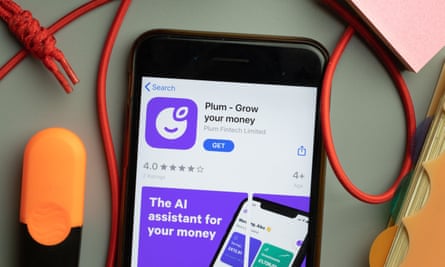Budgeting apps: the best options for tracking your money on the go
Lauren Burrows, a senior consumer writer at the website Money to the Masses, has tried and tested budgeting apps. These link up to your bank accounts, credit cards and investments, and pull in information about your balances and transactions. You don’t need to input your passwords, and will have to confirm every 90 days that you are still happy with the app to access your details. Here are her favourites.
Emma
Emma analyses your savings and current accounts as well as credit cards, and categorises your spending so you can easily see where your money is going each month. It lists your subscriptions, allowing you to see if there are things you are paying for and not using, and any bank fees you have been charged. A premium account, Emma Pro, has additional features such as personalised categories and extra cashback.
New year cash: give your finances a makeover as we charge into 2021Read more
Good for: Beginners and managing subscriptions.
Cost: Emma – free; Emma Pro – £59.99 a year, with the first seven days free.
Pros: Very easy to set up and use. Cashback and rewards for spending with certain retailers such as the Body Shop, B&Q, Gousto, Boots and more.
Cons: A bit gamified and the push to subscribe to Emma Pro can become annoying.
Money Dashboard
Offers most of the same features as Emma Pro but at no cost. These include customisable categories for your spending – for example, you may want to group together all payments for presents around Christmas – and the option to add accounts manually. Money Dashboard also graphs your projected monthly spending with a predicted balance at the end of the month. The level of customisation in the app is ideal for those with accounts and investments across a range of providers.
Good for: More complex finances.
Cost: Free.
Pros: In-depth budgeting analysis with personalised categories based on your individual spending. Desktop version also available.
Cons: Takes time to set up and its automatic spending categorisation could be better.
Yolt
Yolt allows you to organise all of your accounts in one place and you can take things one step further by using its prepaid debit card for everyday spending. Once you have connected your accounts, Yolt allows you to track your spending, see upcoming transactions, create budgets and set saving goals.
Good for: Controlling spending.
Cost: Free.
Pros: Encourages you to set spending budgets. Features such as rounding up your spare change and scheduled payments mean you can maximise your saving.
Cons: Yolt does not allow for weekly paydays. There is no Financial Services Compensation Scheme protection for any money you hold on the prepaid account.
Plum
 View image in fullscreenPlum uses AI to automatically calculate an affordable amount to save. Photograph: Postmodern Studio/Alamy
View image in fullscreenPlum uses AI to automatically calculate an affordable amount to save. Photograph: Postmodern Studio/Alamy
Plum takes budgeting one step further and does the hard work for you as it uses artificial intelligence to automatically calculate an affordable amount to save based on your spending pattern. It lets you know if you could be overpaying on your regular bills and suggests ways to save money. Plum offers more than one plan and its premium options also offer the opportunity to invest your money as well as earn cashback, set savings goals and create saving spaces to separate your money.
Good for: Automated saving.
Cost: Plum Basic – free; Plum Plus – £1 a month; Plum Pro – £2.99 a month (free 30-day trial with both).
Pros: Helps you to save with little effort, also allows you to round up your spare change and earn interest on your savings.
Cons: Have to pay to get some features that other apps offer for free, such as goal setting and cashback. Monthly £1 fee if you want to invest your money.
Alternatives
App-only banks such as Starling Bank and Monzo combine the logistics of a current account with the addition of handy budgeting features such as personalised spending analytics, the ability to separate your money into savings pots or spaces and automatic saving with spare change roundups as you spend.


